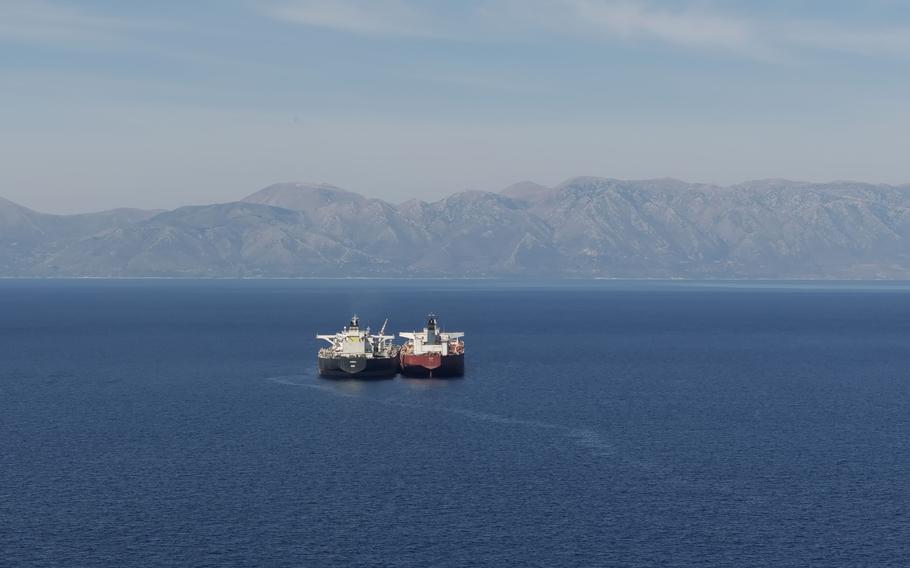
The two tankers Turba, right, and Simba side by side during secretive maneuvers off the coast in the Laconian Gulf, on Sept. 19, 2023. (Laurent Laughlin/Bloomberg)
A UK official said that Group of Seven nations are aiming to curb Russia’s ability to use a vast shadow fleet of tankers to deliver its oil, the latest sign of a ramp up in western sanctions on Moscow.
Russia, with the help of mystery traders and shipping companies, assembled a hundreds-strong fleet of tankers to ship its oil following the establishment of a price cap by the Group of Seven nations and its allies. That enabled Moscow to transport oil without using western services like ships, insurance and finance — which was the norm until the war in Ukraine.
But now, the nations that signed up to the price cap are working to force those cargoes back to western service providers, according to Olga Dimitrescu, head of engagement for the oil price cap at the UK Office of Financial Sanctions Implementation.
“What we want to do is force these volumes back into the G-7 fleet,” she said in a podcast with NorthStandard, one of the world’s top insurers against risks like oil spills and collisions involving ships. “We’re making it harder for Russia to use its shadow fleet, which in turn would force more volume back into the G-7 fleet where service providers are compliant with the cap.”
As part of those efforts, there have been discussions with governments across the globe about the marine and environmental risks posed by the shadow fleet, she said.
The European Union has also taken steps to restrict sales of old tankers to unknown owners, effectively making it harder to add to the shadow fleet.
Late last year, the U.S. indicated that it was planning on ramping up enforcement of the price cap, after a flurry of sanctions were placed on ships and companies that were deemed to have breached the policy.
Since then the number of designations have slowed, but Dimitrescu said she expects further actions in the second quarter.
“In the second quarter, we’ll very likely up the ante on enforcement and continue taking action against actors engaged in deceptive practices,” she said. “Our overall priority is to tighten compliance and enforcement of the policy mechanism.”
More stories like this are available on bloomberg.com
©2024 Bloomberg L.P.